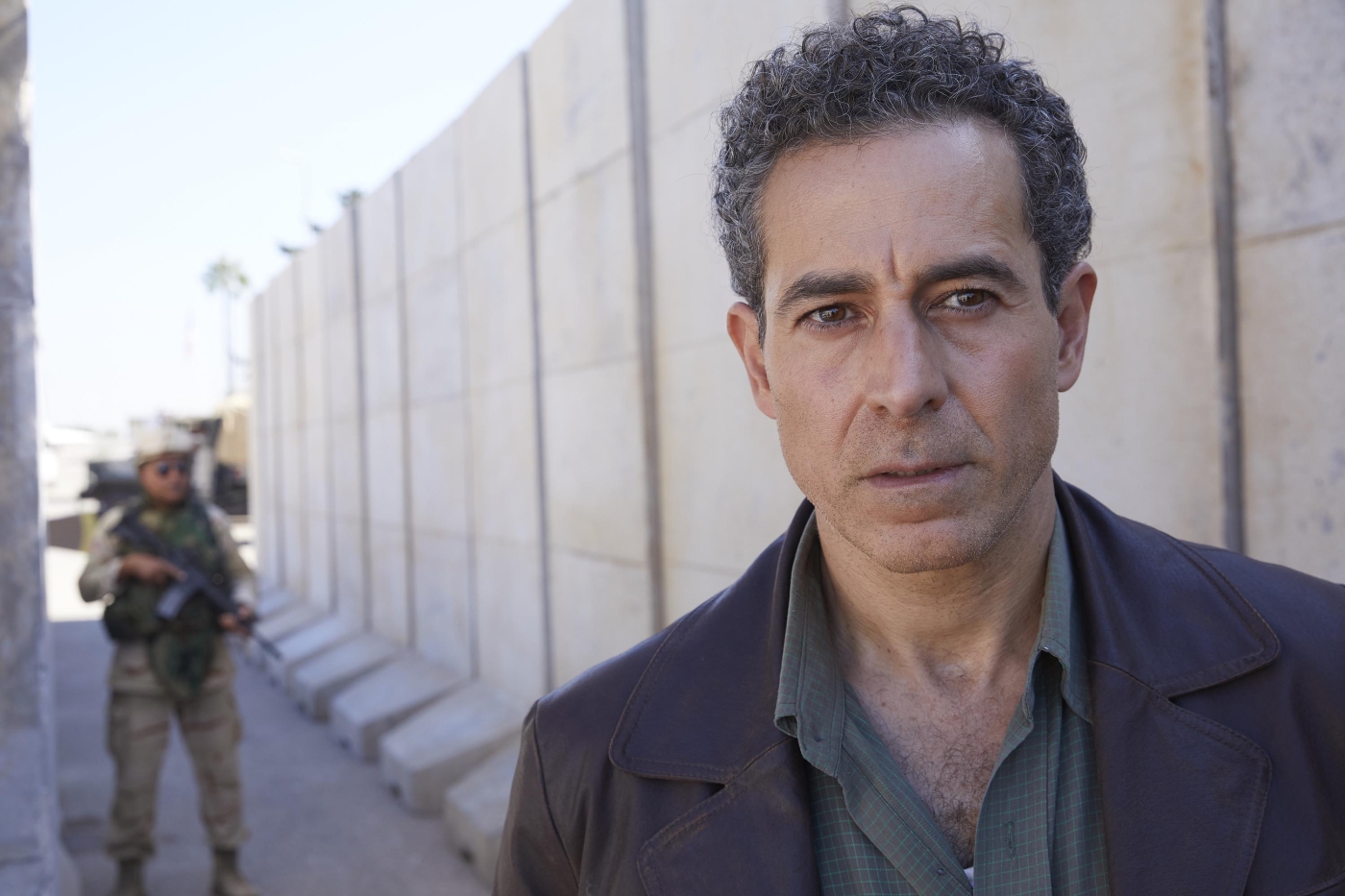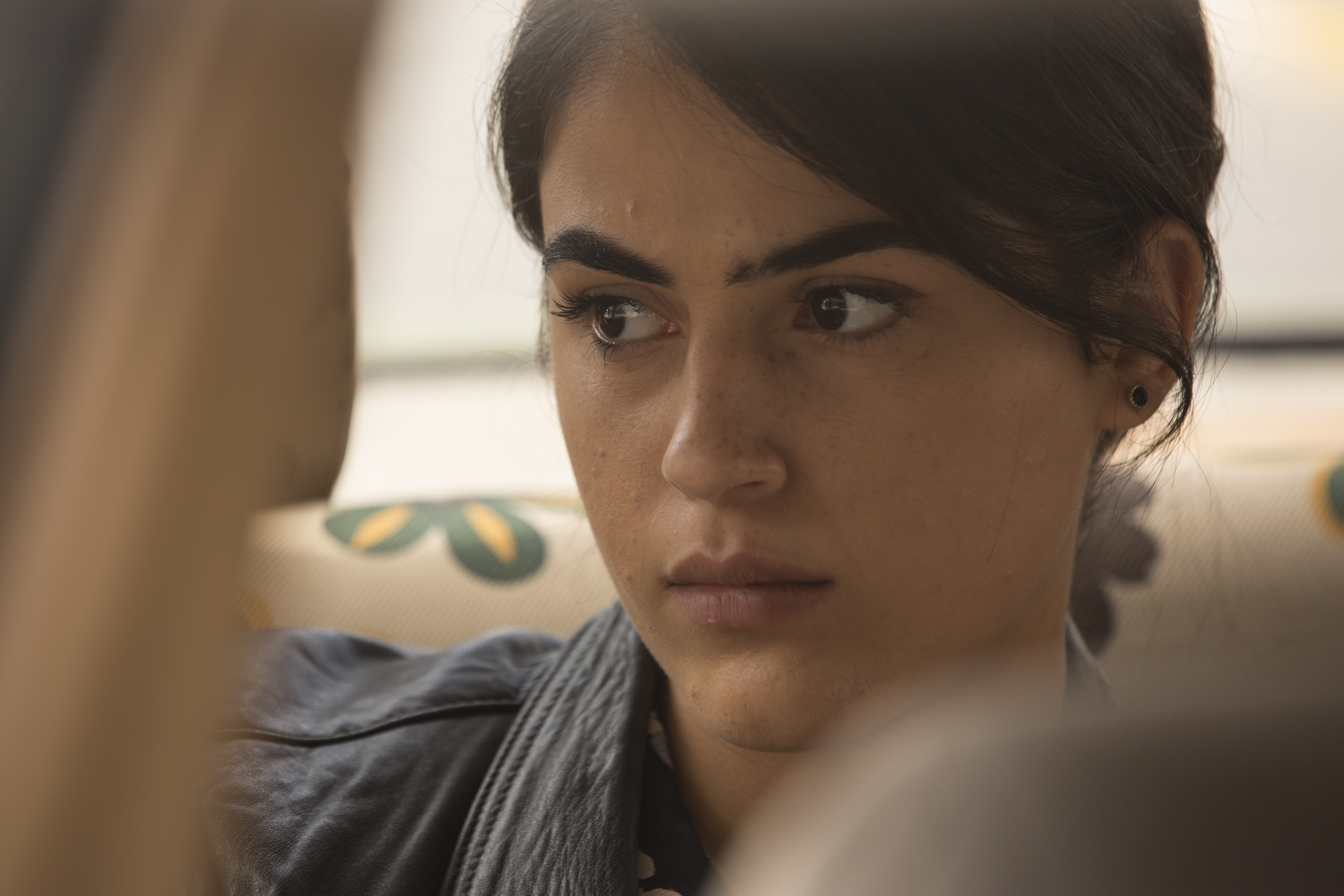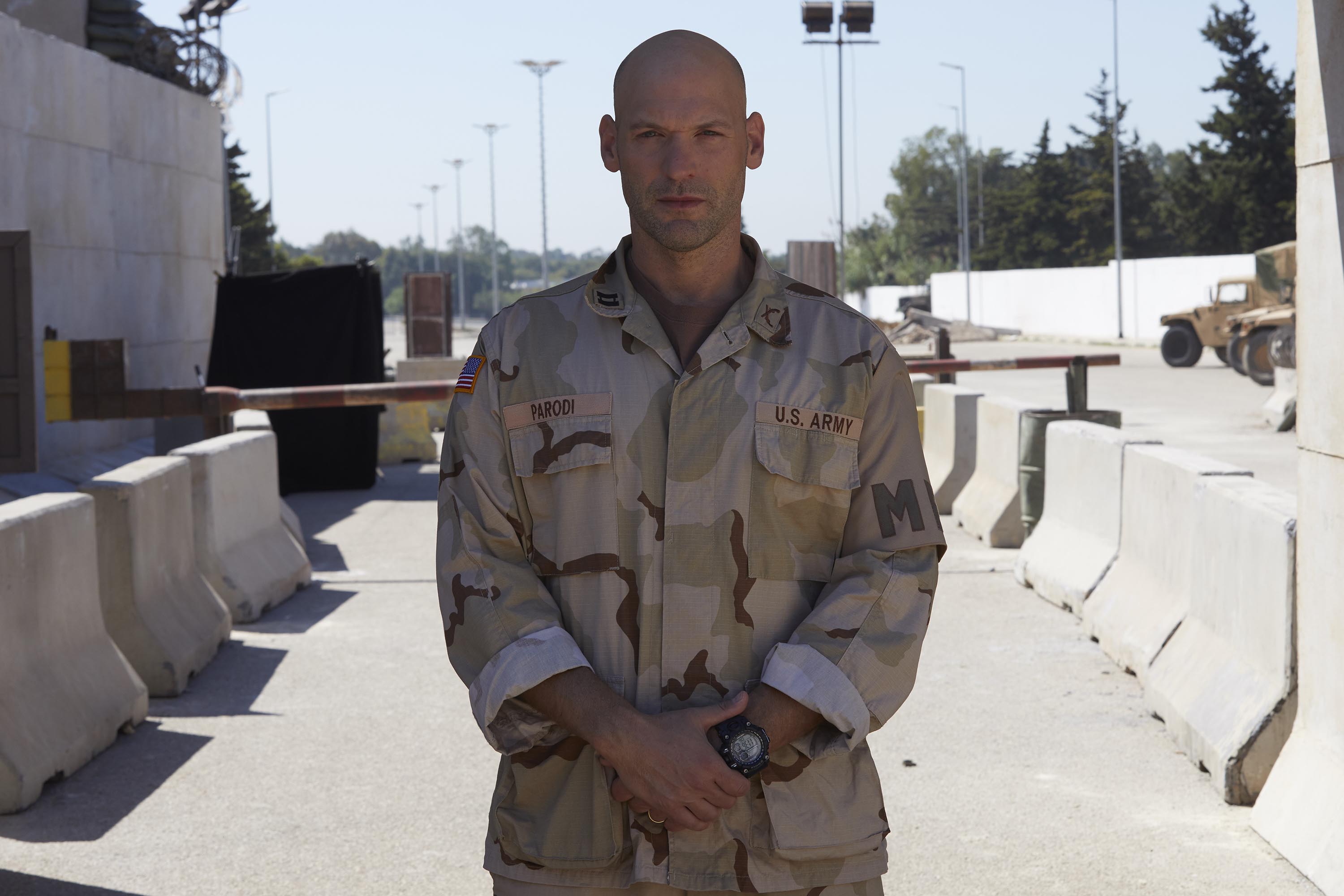Baghdad Central: The human cost of Iraq war revealed in superior thriller | Middle East Eye
Iraq At War
Baghdad Central: The human cost of Iraq war revealed in superior thriller

Oscar Rickett
Published date: 21 February 2020 12:59 UTC|Last update: 1 year 4 months ago
Series highlights how ordinary Iraqis, living in the cradle of civilisation, have been denied the chance to make their own country

Waleed Zuaiter as Inspector Mushin al-Khafaji in Baghdad Central (Channel 4)
814Shares






Baghdad, early March 2003: a father drives his two daughters through the streets of the Iraqi capital. They talk about the prospect of invasion. “It will mean change,” says one of the daughters. “Iraq needs change.” The father responds: “It will solve nothing.”
The daughter talks about democracy and freedom. The father isn’t convinced. They drive past a partially defaced mural of Saddam Hussein. A couple of scenes later, the sky lights up and bombs rain down. The invasion has begun.
Baghdad Central, a six-part television series adapted from the novel by Elliott Colla and produced by Channel 4 and Hulu, hits the ground running.
Seductive thriller
It takes a country most often found on news reports and makes it the setting of a detective show. It smuggles a detailed, well-researched exposition of the horrors of the invasion and the society it created inside a seductive and impeccably acted primetime thriller. It’s even got a catchy piano-led theme tune that’s much more Poirot than Operation Iraqi Freedom.
Like all good television, it begins with the characters, none of whom are entirely saint or completely sinner. The father is Muhsin al-Khafaji (played by Waleed Zuaiter), an Iraqi police inspector who survived under Saddam at great personal cost. His daughter Sawsan (Leem Lubany), who longs for change, goes to work for the US coalition and has her faith swiftly shattered.
 Sawsan (Palestinian actor Leem Lubany) goes missing after working for the Americans (Channel 4)
Sawsan (Palestinian actor Leem Lubany) goes missing after working for the Americans (Channel 4)The detective’s other daughter Mrouj (July Namir) needs urgent medical treatment. And so, after he is accused of being a Baathist insurgent and tortured at Abu Ghraib, Khafaji makes a deal with the devil: he will work for the coalition, helping them establish a functioning police force, if his daughter gets the treatment she needs.
Meanwhile, Sawsan goes missing, and we are plunged into the dark heart of post-invasion Iraq, encountering corrupt and murderous British contractors, prostitution rings, abusive US soldiers and widespread ignorance of and contempt for the Iraqi people.
At one point, an exasperated Khafaji asks Captain Parodi (Corey Stoll), an American, if there is anyone in the whole of the United States who knows a single thing about his homeland. At another, a British mercenary (a perfectly cast Neil Maskell) tells his boss, the rat-like Frank Temple, played with a brilliant shape-shifting intensity by Bertie Carvel, that Iraqis “aren’t real people”.
Imperial capitalism at work
Iraq is a host organism, and almost all of Baghdad Central's foreign players are there to feed on it. Take the money, damn the consequences and run. This is imperial capitalism at work, and the challenge for most of the Iraqi characters and their Western counterparts is to fight not only for their own survival, but also for a space in which some human life can exist.
Almost two decades on from the invasion, those of us sitting in front of our screens in the West might very well not know what the invasion brought and what it has wrought. Leading political and media figures in the US and UK would still rather we all forgot how and why we went to war in Iraq.
Even in our age of rupture, what is happening in places such as Yemen, Syria and Iraq can seem incomprehensible to people in the West
What’s more, there is often a stubborn refusal to accept culpability and a manufacturing of ignorance around the subject. When I interviewed former British Prime Minister Tony Blair’s former chief of staff, Jonathan Powell, in 2016, he told me I was “naive” to think that the invasion had played a significant role in the unravelling of Iraq.
In the run-up to the UK elections last year, Blair’s former spin doctor, Alastair Campbell, author of the “dodgy dossier” on weapons of mass destruction, used that same word, at one point deploying air quotes when referring to “Iraq”.
Framing criticism as "naive" is no accident. It implies that you, the pragmatic insider capable of making the tough decisions, have a level of understanding that is not available to all those soft-headed idealists who just don't understand that innocent civilians dying in vast numbers is simply how the "real world" works.
A programme such as Baghdad Central can enlighten people while entertaining them at the same time. Over the years, I have interviewed the British documentary filmmaker Sean McAllister a number of times. During those conversations, McAllister, director of Syrian Love Story and The Reluctant Revolutionary, among many other features, has returned again and again to the idea of bringing stories from the Middle East back home to his “mates in Hull”, the city where he grew up.
Ordinary people, extraordinary circumstances
Even in our age of rupture, what is happening in places such as Yemen, Syria and Iraq can seem incomprehensible to people in the West. Three-minute reports on the evening news leap into the middle of the story, often boiling down to footage of different groups of people shooting at each other.
If we know that here, amid the conflict, are ordinary people – not so different from us – trying to live in extraordinary circumstances, then we are very rarely shown those people on our screens. What we see instead is armed conflict, politicians spouting sound bites, and a picture of the world divorced from context and history.
 Corey Stoll plays the American Captain Parodi in Baghdad Central (Channel 4)
Corey Stoll plays the American Captain Parodi in Baghdad Central (Channel 4)Inspector Khafaji is an altogether more compelling prospect. Zuaiter, an actor with Palestinian heritage whose Hollywood career has involved playing more terrorists than he’d like, plays him with a wry, haunted charisma. He stands upright and walks with a purpose. At the beginning of the show, he has a moustache, but after his trip to Abu Ghraib, it has “been confiscated” and “sent to Washington as an example of authentic Iraqi culture”.
To kill or not to kill: The BBC’s House of Assad tells Syria as Shakespeare
Oscar RickettRead More »
Khafaji is a hero, and the show – partly in Arabic and partly in English – is built around him. But he is a man with a past. What did he do in that past, we wonder? Was he a blunt instrument of Saddam’s regime? We don’t think so, but he was still a police officer, so anything is possible.
'We are all guilty'
Simple answers are not provided. In the last episode of this first series, the inspector is confronted by an Iraqi who believes he’s responsible for the murder of his father.
“You were always a collaborator,” the man says. “We are all guilty,” says Khafaji – exasperated, worn out, in pain. “All of us. Because we did nothing except survive. And we left it to our children to protest.” We never had a country, the inspector says; not then and not now.
This tragedy is key to Baghdad Central. Ordinary Iraqis, living in the cradle of civilisation, denied the chance to make their own country for so long.
A show written by a Brit and adapted from a novel by an American, it has an Iraqi producer, Arij al-Soltan, at its heart. Soltan was just a young girl when her country was invaded and her experiences - and the footage she shot of Iraq - were key to the production. More than that, Iraqi characters - albeit usually played by (very good) Palestinian actors - are central to Baghdad Central.
And for those audiences in the West who rarely engage with the news from Iraq, here’s a moving, compelling and surprisingly funny detective drama that also happens to shed a little light on what exactly that ill-fated invasion brought.
Oscar Rickett
Oscar Rickett is a journalist who has written and worked for Middle East Eye, VICE, The Guardian, openDemocracy, the BBC, Channel 4, Africa Confidential and various others.
No comments:
Post a Comment